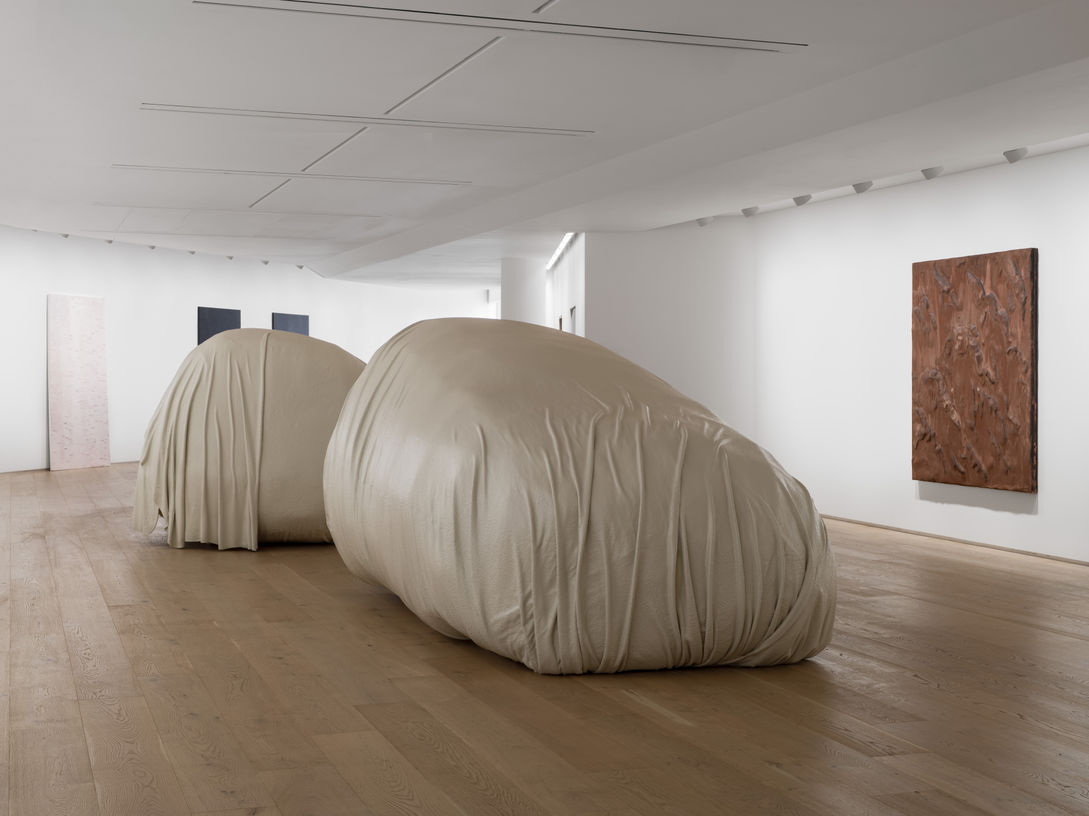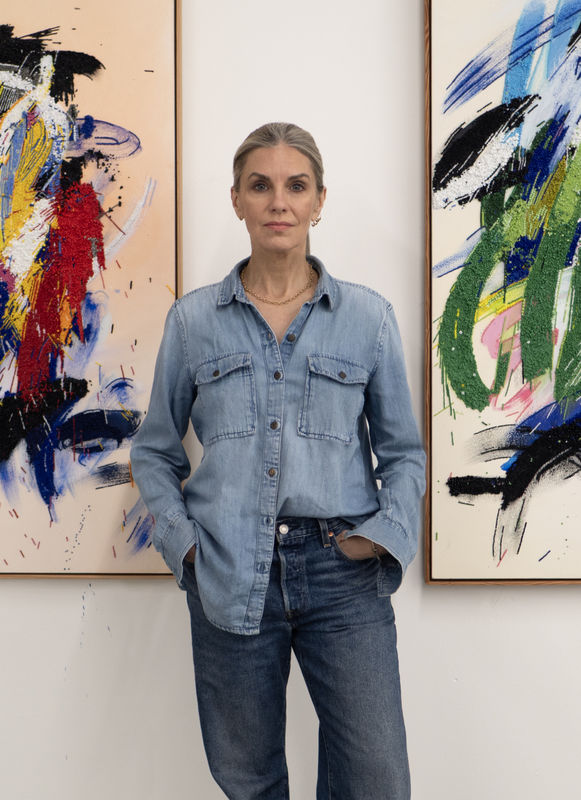Markus Schinwald Studio visit and interview
Markus Schinwald is without a doubt one of the most important Austrian artists. He’s represented Austria at the Biennale in Venice, taught classes in Yale and now splits his time between New York and Vienna. His work can’t be reduced to a style or a medium that’s constantly reproduced. His artistic debate is one with the world, the human condition, and perception. For some time now he has been a professor of painting at the State Academy of Fine Arts, Karlsruhe.
Interview by Karin Novozamsky
Before Markus and I sat down for our interview, we talked for over an hour. We know each other from a time when he was still a student and I had just started working in advertising. That was thirty years ago. Back then, our shared circle of friends would go to art exhibitions, concerts or dinner at night. It was a creative time of new beginnings and discovery. A time that—as it turns out in the course of our conversation—has stayed with us and still influences both of our lives.
MAISON Ë We last saw each other almost thirty years ago. A lot has happened in your life in the meantime. How would you describe your journey since?
Markus Schinwald There is always a view from the inside and one from the outside. From the outside, my path probably seems restless and too eventful to find a meaningful dramaturgy in it. But for me, from the inside, it wasn’t like that at all. I have always remained a seeker in a sense, on a quest to find happiness. Although happiness came along the way. It was important to me to slip into different roles. The more contrasting and different they were, the more exciting I found them. Just as the role of the professor is a new one that is only defined and shaped by practice—by doing. Or the role of the exhibition designer who directs the gaze and the attention, shaping the experience in the process.
M. Ë How do you define art?
M. S. I don’t. What interests me in what I do is maybe ten percent about art. Whether something is art or not is irrelevant to me. It also makes no sense to fight against institutional definitions of art. Art is what is defined as such by the art world.















































































































































































